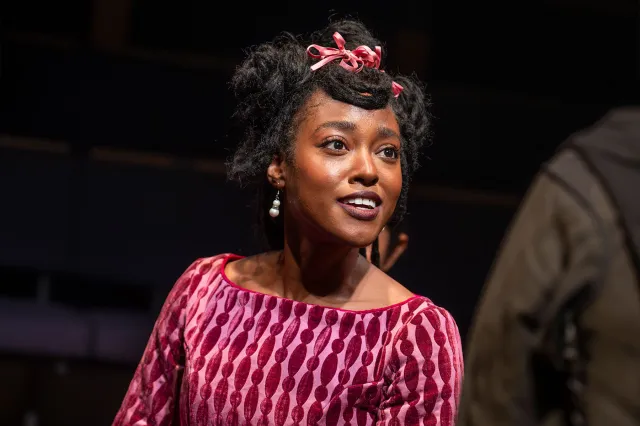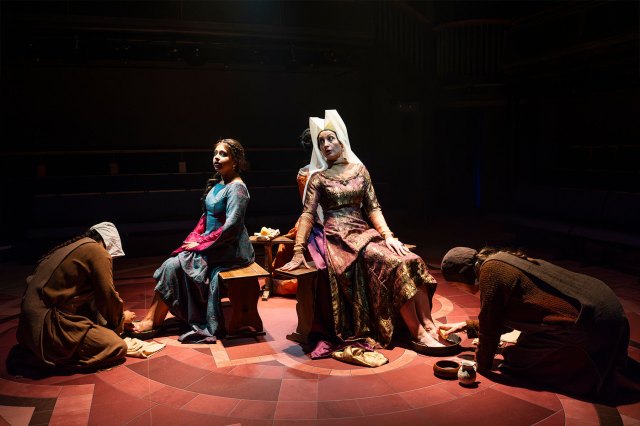Poor Clare at the Orange Tree Theatre – review
Blanche McIntyre’s production, featuring Arséma Thomas in her professional stage debut, runs until 9 August

Set in 1211 Italy, playwright Chiara Atik tells the story of St Clare of Assisi, founder of the Order of Poor Ladies (later called The Poor Clares), who renounced her family’s wealth and status and dedicated herself to a life of poverty.
Poor Clare focuses on the journey to her calling, combining sharp humour and a vibrant modern-day vernacular to address weighty issues of social justice and imbalance with a sense of fun and wry wit. It asks its audience some important and deeply thought-provoking questions, crucially without preaching or descending into a lecture.
Noblewoman Clare spends her days gossiping with her servants and sister, trying out hairstyles and waiting to get married. Then one day, a man called Francis comes to her attention, calling out the inequalities surrounding her. Once Clare’s eyes are opened to the realities of poverty and injustice, she cannot look away. She gradually rejects material chattels for a life devoid of comforts, going from having her feet massaged by her servants to discarding her shoes entirely.
Blanche McIntyre’s fluid direction complements Atik’s fast-paced script, which is astute and often very funny. The whole cast have American accents, giving the production a contemporary feel, although dressed in period costume. Clare and Beatrice speak as modern teenagers about boys and “super-cute” clothes. Francis is more eloquent in explaining his need to reject his own family’s money, but these are also saints who swear a lot.

Arséma Thomas (of Netflix’s Queen Charlotte fame) makes a strong stage debut as Clare; forthright and assured, Thomas shows the slow fracture of Clare’s surety about herself and the value of her life. Her decision to leave her family seems a little sudden, but Thomas convincingly conveys Clare’s doubts and worries, which then turn to steely determination.
Freddy Carter is a slightly petulant Francis; he wants to do good, but sometimes forgets to be kind. He is uncompromising, which forces Clare to confront uncomfortable truths. Atik’s script subverts the idea of Francis as the beatific leader, showing a man who has his own doubts about his path. Carter and Thomas have a fractious, convincing chemistry that shows them moving along their paths together.
Anushka Chakravarti is very funny as Clare’s superficial sister Beatrice, blithely unquestioning of her own status and comfort. Chakravarti and Thomas share very realistic sibling banter and teasing. As the girls’ mother Ortolana, Hermione Gulliford represents liberal ideas that she is happier talking about than espousing.
Special mention must go to Chris Smyth’s wigs and hair which are pivotal to the production; from the intricate hairstyles of the sisters (credit to the servants, played by Liz Kettle and Jacoba Williams, who create Clare’s in real time), to Francis’ surprise tonsure and Clare’s definitive act of cutting off her own hair.
Atik’s play works so well because the themes are universal, cleverly interweaving the past with the present. The gap between the rich and poor is as stark today as it always has been and social injustice can be ignored all too easily.
Poor Clare is both timely and timeless and a gentle nudge for the audience to think about how we can be better people.















